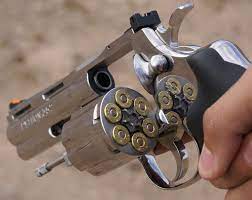
The Six Kinds of NFA Firearm Trusts
The National Firearms Act (NFA) was basically released in 1934 beneath Key executive Franklin D. Roosevelt’s administration as a response on the expansion of brutal criminal offense activities devoted with firearms. The act was implemented with the purpose of regulating and manipulating the financial transaction, ownership, and change of specific firearms and extras deemed too harmful for neighborhood use. Over the years, The National Firearms Act is susceptible to numerous amendments and modifications to include a broader variety of firearms. In this article, we will plunge on the fundamentals of the National Firearms Act, what it really controls, and exactly how it affects tool supervisors and vendors all over the united states.
1. What is the National Firearms Act?
The national firearms act (NFA) is definitely a national rules that controls distinct firearms and additional features which is often considered to be too dangerous or are considered army- and guidelines-enforcement level. The act was released in 1934 like a legislation geared towards curbing criminal offenses concerning employing particular firearms. Some of the firearms and accessories operated from the NFA comprise of speedy-barreled rifles, speedy-barreled shotguns, device weapons, risky products, suppressors, as well as any other weaponry (AOWs).
2. NFA Regulations
Below the NFA, pistol end users and retailers be forced to shell out a taxes and publish a software in the Bureau of Alcoholic beverages, Tobacco cigarettes, Firearms, and Explosives (ATF) before they can acquire, trade or create any among the aforesaid firearms and add-ons accredited through the NFA. NFA taxation are accrued from the National Firearms Act Stamp (NFA Stamp), which men and women must hook up to the application form kind develop well before posting it to the ATF. Men and women must also undergo history report inspections and deliver fingerprints included in the computer software method. With one of these regulations, the NFA aspires to keep tabs on who possesses firearms and accessories that existing a large hazard to open public safety.
3. NFA Exemptions
Its its not all firearms and additional items fit into the legislation inside the National Firearms Act. As an example, firearms that happen to be typically useful for using functions, such as shotguns, rifles, and handguns, usually do not require an NFA stamp or income tax before acquire or trade. Additionally, collectible firearms (manufactured well before 1898) and firearms made for army use are also exempt in the NFA laws.
4. NFA Impact on Firearm Customers and Dealers
The National Firearms Act directly has an effect on tool owners and retailers by regulating the transaction, management, and transfer of particular firearms and add-ons considered to be too dangerous for wide open open public use. Before acquiring any handgun certified in the NFA, the individual must distribute an application form (ATF Sort 4), spend a fees, go through fingerprinting, and move forward using a comprehensive background check out. Weapon dealers also have to expertise in depth National Firearms Certification (FFL) research and abide by all government and condition polices to obtain eligible to market NFA-certified firearms and additional items.
In A Nutshell:
In summary, The National Firearms Act is in reality a government rules that strives to regulate and take care of the selling, property, and move of several firearms and add-ons considered too risky for wide open public use. To achieve this, the NFA needs weapon proprietors and vendors to deliver a software develop (ATF Build 4), shell out a income taxes, undergo fingerprinting, and move forward with an intense reputation look at. Although the NFA has experienced some critique throughout the years, it offers proven to be an effective legislation in curbing the increase of brutal criminal acts linked to firearms by regulating the sale, property, and shift of firearms and elements that create an important danger to general public protection.